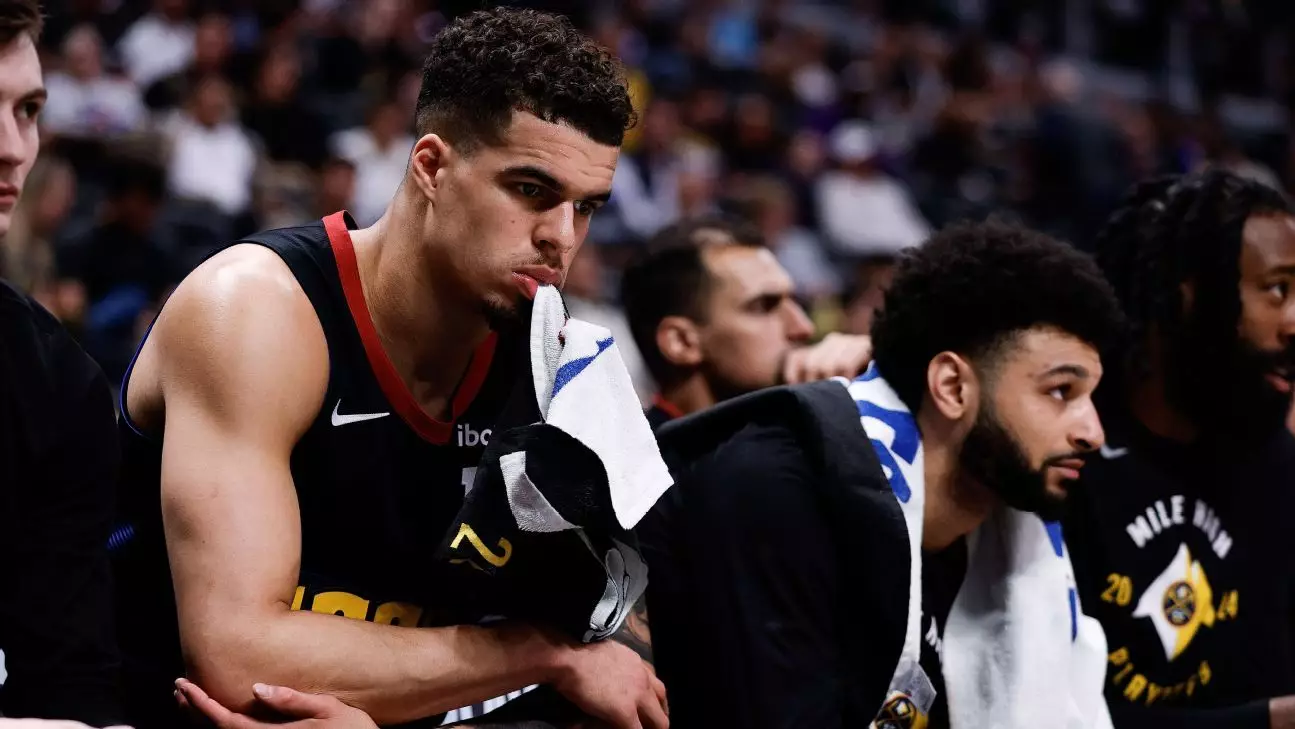In recent years, the surge of sports betting has fundamentally altered the landscape of professional sports. Athletes like Michael Porter Jr. have voiced serious concerns about how gambling’s proliferation has compromised the core essence of competitive integrity. When the focus shifts from performing at one’s best to strategizing around betting odds, the beauty of sport—its unpredictability, skill, and passion—begins to diminish. The thrill is no longer in the game itself, but in the potential monetary gains or losses that shadow every play. This transformation undermines the purity of athletic contests and risks turning watching sports into a mere gamble, stripping away the genuine joy that once defined fandom.
The Disturbing Reality of Gambling’s Impact on Players
Porter’s remarks gain further weight considering his brother Jontay’s recent ban from the NBA for involvement in a gambling scheme. The court proceedings unveiled a disturbing story: a player intentionally manipulating his game performance to benefit gamblers, driven by the desperation to pay off debts. Such admissions reveal how deep gambling’s tentacles reach into the lives of athletes, especially those from disadvantaged backgrounds. For many, the allure of easy money can cloud judgment, making it extraordinarily difficult to resist. The vulnerability is exacerbated by the perception that sports figures are easily swayed by financial pressures, which opens a Pandora’s box of ethical dilemmas and potential corruption.
The Perilous Consequences of a Wealth Gap
Porter’s comments underscore a broader societal issue: players often come from impoverished conditions, making the temptation to gamble even more intense. The prospect of rapidly changing one’s circumstances, however fleeting, can lead players down a destructive path. The scenario Porter described—players encouraging friends to place risky bets, even risking their careers—illustrates a dangerous social dynamic where desperation outweighs morality. As sportsbooks continue to capitalize on the widespread acceptance of sports betting, the risks expand not just for players, but for the entire integrity of professional sport.
A Call for Stricter Regulation and Cultural Shift
Despite the allure of online betting, Porter advocates for more stringent restrictions, proposing that sports gambling should be limited to in-person venues like Las Vegas. This stance reflects a belief that minimized access could substantially reduce the exposure to gambling temptations. However, such measures are only part of the solution. The sports industry must confront its complicity in promoting these betting markets and implement comprehensive safeguards—educating players about risks, enforcing strict monitoring, and fostering a culture that values integrity over profit. Without these changes, the darker consequences of sports betting threaten to overshadow the thrill of sport and erode public trust.
The discussion surrounding sports betting’s influence on athletes and their profession is a wake-up call. While gambling can add excitement for fans, the hidden costs—corruption, compromised integrity, and the exploitation of vulnerable players—pose a far greater threat. It is imperative that stakeholders recognize these dangers and act decisively to preserve the true spirit of competition.

